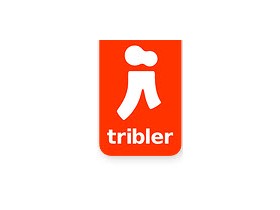AI is everywhere, even when searching for torrents. Researchers at Delft University of Technology have demonstrated a new feature for their decentralized BitTorrent client, Tribler, as reported Torrent Freak. The promise is to allow Internet users to turn away from large groups who have control over their data by carrying out anonymous searches powered by AI.
Torrent: an AI-powered and decentralized search engine
Rebalancing power is what these researchers want, to whom we owe Tribler, a project born 20 years ago which aims to “fix the internet”, now in the hands of governments and big corporations. This BitTorrent client already allows anonymous searches through a proxy that uses the Tor network and it is preparing to add a good dose of AI with the Decentralized Differentiable Search Index (De-DSI).

Trible
Tribler is a BitTorrent client aimed at anonymizing network traffic.
-
Version :
7.14.0 -
Downloads:
30 -
Release date :
04/24/2024 -
Author :
Delft University of Technology -
Licence :
Free software -
Categories:
Internet
-
Operating system :
Linux, Windows 32-bit – XP/Vista/7/8/10/11, Windows 64-bit – XP/Vista/7/8/10/11, macOS
To do this, Tribler relies on several large decentralized language models (LLMs) stored by peers. Search is also decentralized so users can find a torrent in a pool among multiple peers. To summarize, this BitTorrent client removes the need for torrent sites and has implemented anonymity with an onion routing layer to file transfers. The process relies only on information shared by users, without a central server. Which makes control impossible for outsiders.
As explained previously, Tribler does not yet offer its De-DSI. There is only a demo which has not been integrated into the client. The project aims for an experimental version with the addition of this decentralized user interface for the end of 2024.
For our demonstration, we trained an end-to-end generative transformer on a small dataset including YouTube links, magnet links, and Bitcoin wallet addresses. These identifiers are each annotated with a title and represent links to movie trailers, CC-licensed music, and Bitcoin addresses of independent artists.
De-DSI works by sharing its LLM learning workload on lists of document identifiers. A peer in the network specializes in a subset of data that other peers in the network can extract in order to obtain a relevant search result. This is a solid concept even if we will have to wait a little before its integration into Tribler.
Giving power back to internet users
However, it should be noted that this AI search will be slower and will do little to help users who know what they are looking for. Trial and error will improve the concept. Decentralized machine learning could also combat spam, recommendations based on personal data, and optimize torrent metadata.
Since the launch of the Tribler project, several million euros have been invested to advance decentralized technology. As the team explains, “Our entire research portfolio is guided by idealism. Our goal is to take power away from corporations, governments and AI and transfer it to empowered citizens”.
The very limited proof concept of De-DSI and its associated code are available on HuggingFace, in addition to the technological details, at this address.
